Can't sleep? Yoga could add almost two extra hours to your rest, study finds
Will gentle exercise this evening help you sleep better tonight?
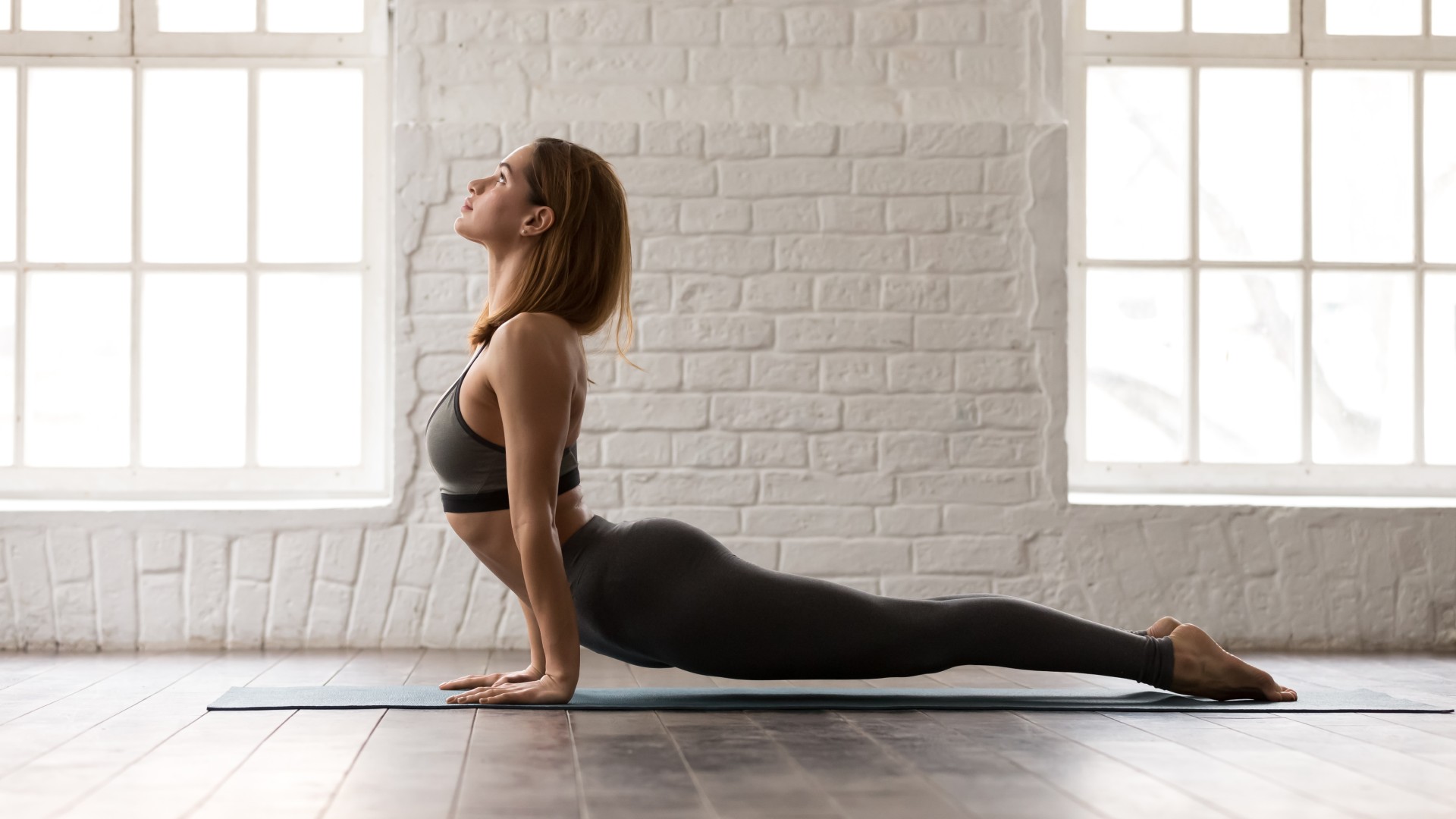
Here at Tom’s Guide our expert editors are committed to bringing you the best news, reviews and guides to help you stay informed and ahead of the curve!
You are now subscribed
Your newsletter sign-up was successful
Want to add more newsletters?
Join the club
Get full access to premium articles, exclusive features and a growing list of member rewards.
Gentle exercise including yoga, Tai Chi and jogging should be considered a primary treatment method for insomnia, a new review published in the online journal BMJ Evidence Based Medicine suggests.
Roughly one third of the population is expected to experience insomnia at some point but many treatment methods remain inaccessible — such as CBT-I — or come with potential side effects — such as medication.
This review aims to better establish exercise as an accessible treatment for insomnia while encouraging further clinical research into which forms of exercise show the most benefits, to create better guidelines for patients.
Key takeaways of the review
- Exercise is a low cost and accessible treatment for insomnia
- Yoga, Tai Chi and jogging effectively reduce insomnia severity
- Yoga can potentially increase sleep duration by up to two hours
The systematic review undertaken by sleep scientists in China assessed 22 insomnia-focused randomized control trials featuring a total of 1,348 participants and exploring a total of 13 interventions (seven exercise-based.)
CBT-I (Cognitive Behavioral Therapy for Insomnia) is a popular insomnia treatment that aims to reframe your approach and attitude to sleep, to improve your rest. While effective, the low number of practitioners means it's often hard to access.
Based on sleep diary data collected from these studies, yoga, Tai Chi and gentle walking or jogging were determined to have the largest positive impact on insomnia.
Yoga in particular proved effective at increasing sleep duration, adding an average of 110 minutes to the time spent snoozing — that's close to two hours.
Tai Chi also demonstrated benefits across the PSQI (Pittsburgh Sleep Quality Index, a self-reported sleep assessment), as well as improving total sleep time and the time it takes to fall asleep.
Get instant access to breaking news, the hottest reviews, great deals and helpful tips.
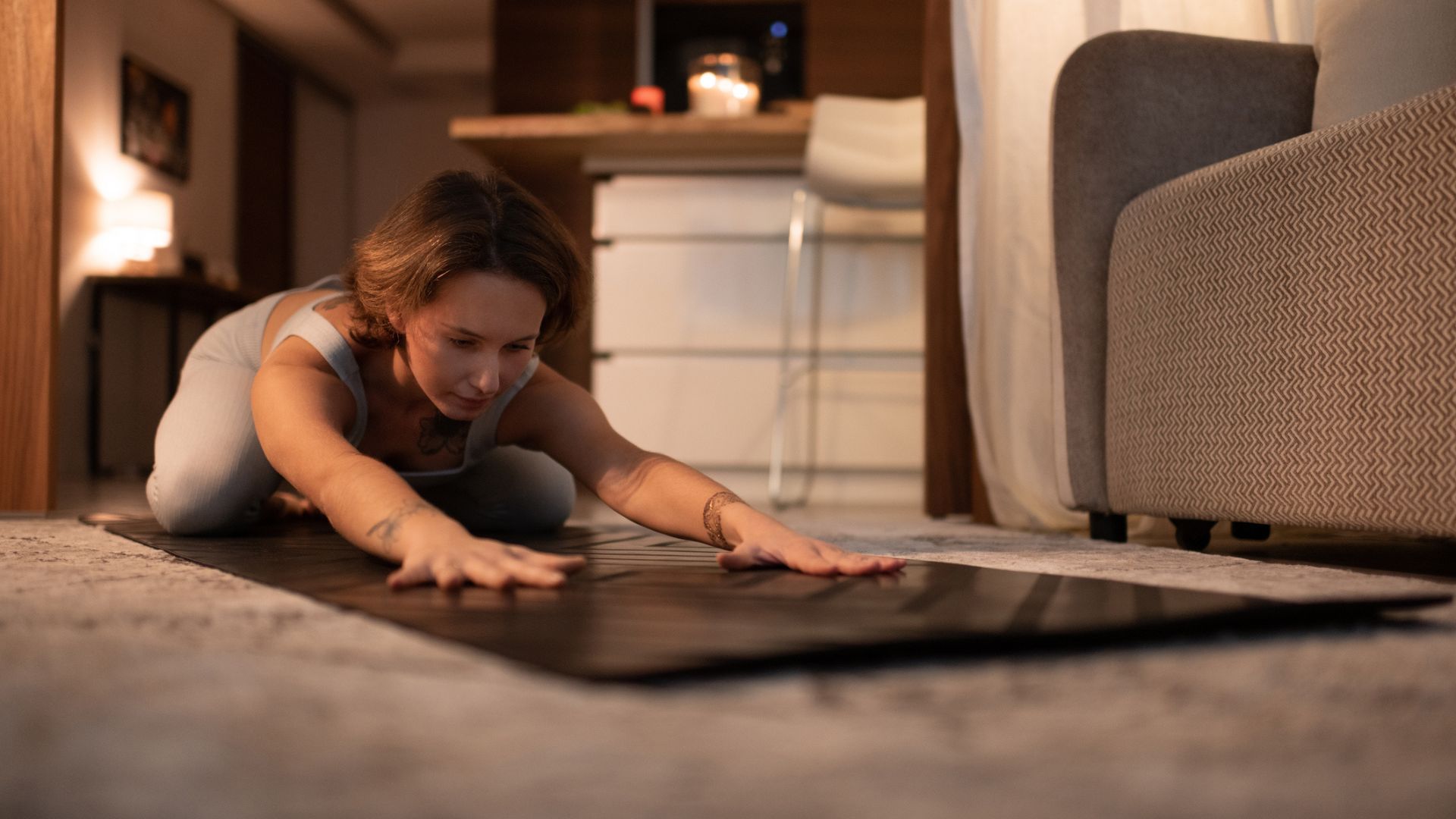
In addition, Tai Chi demonstrated long-term benefits for those who had experienced sleep difficulties, continuing to show improvement across sleep outcomes in the one to two year follow-up.
Gentle walking or jogging was also shown to reduce insomnia severity.
While the review recognizes CBT-I as the gold-standard for insomnia treatment, it encourages the above forms of exercise as "viable primary treatment options" for those experiencing insomnia. They recognize the treatments as "well-suited for integration into primary care and community health programmes."
"Body awareness, controlled breathing and attentional training"
The review theorizes that yoga and Tai Chi are particularly effective treatments for insomnia due to their focus on "body awareness, controlled breathing and attention training."
Mindfulness for sleep encourages positive, relaxed thinking, qualities that are also prominent in many forms of yoga and Tai Chi.
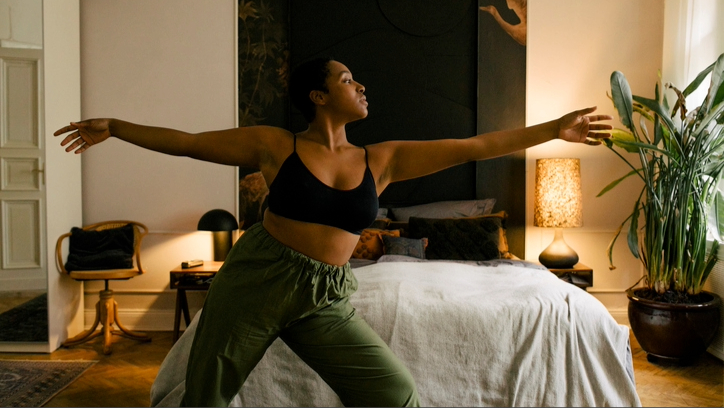
The study further theorizes that the "meditative movement" of Tai Chi can encourage emotional regulation while helping quiet busy thoughts. These two features might prove particularly useful for those finding anxiety or stress is keeping them awake.
As for jogging and walking, the researchers behind the review suggest a combination of energy use, increased melatonin production and improved emotion regulation make these exercises particularly sleep-inducing.
The dos and don'ts of exercising for better sleep
Establishing a consistent exercise routine can benefit your sleep and help you avoid insomnia. Here are some dos and don'ts of exercising for better sleep to get you started.
DON'T do strenuous exercise too close to bedtime
We know a packed calendar can make scheduling your workouts a workout in itself, but it's important to consider both when you're exercising and the type of activity you're engaging in to find the best time to exercise for sleep.
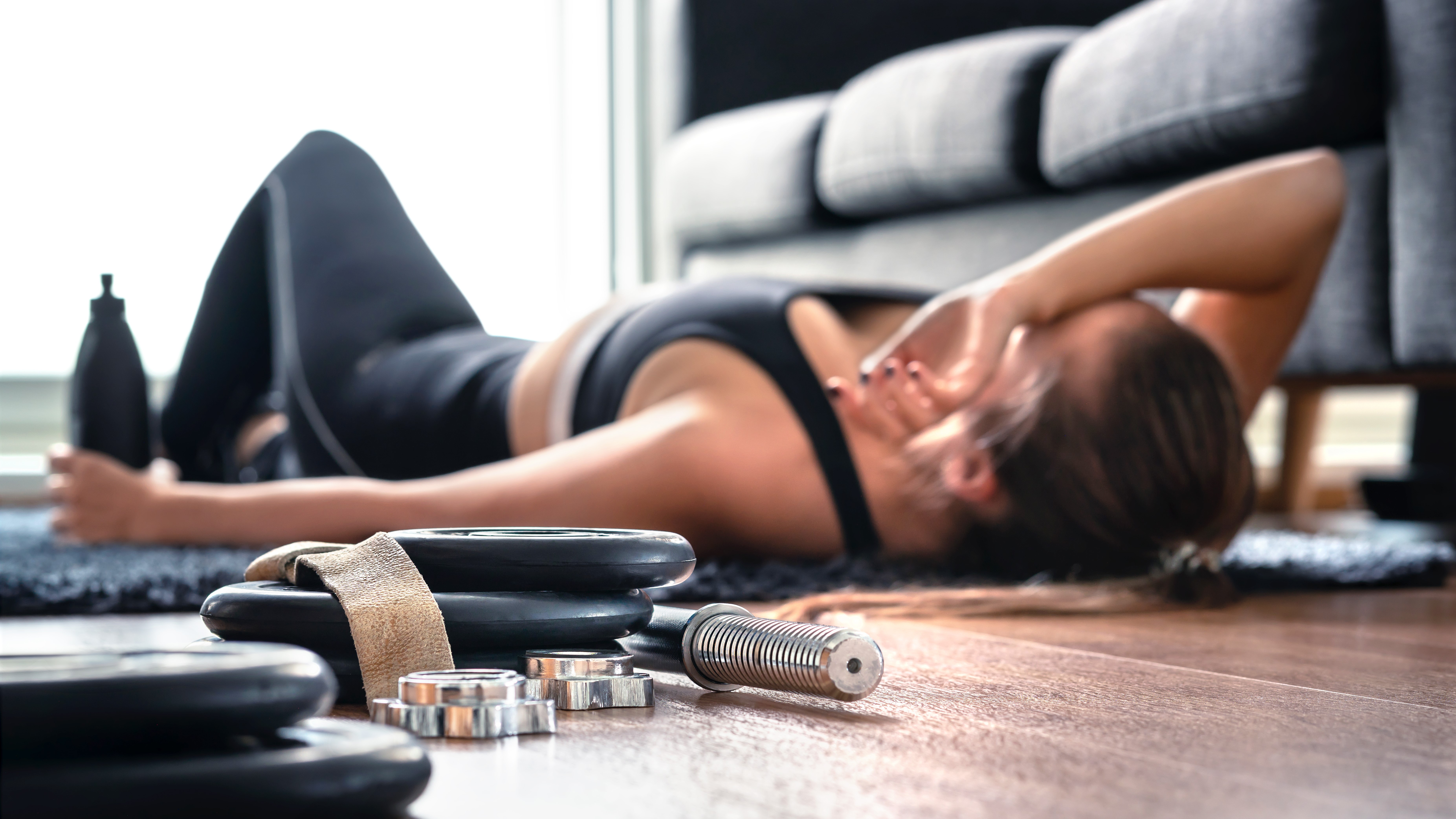
Vigorous exercise before bed is likely to keep you awake, as your body struggles to switch off after being put to work. However, research suggests intense workouts in the morning or afternoon can help you achieve deeper sleep.
DO add gentle exercise into your pre-bed routine
Light exercise — such as yoga, Tai Chi and walking — can be beneficial later in the day, particularly if you're using that mind-body connection to calm anxious thoughts that might otherwise plague your sleep.
A few minutes of stretching roughly an hour before bed can help reduce muscle tension and release stress, so you're more relaxed when you climb beneath the covers.
DO exercise for at least an hour a week
Consistency is equally as important as timing when it comes to exercising for better rest — an occasional stretch every few weeks is unlikely to provide any long-term sleep benefits.
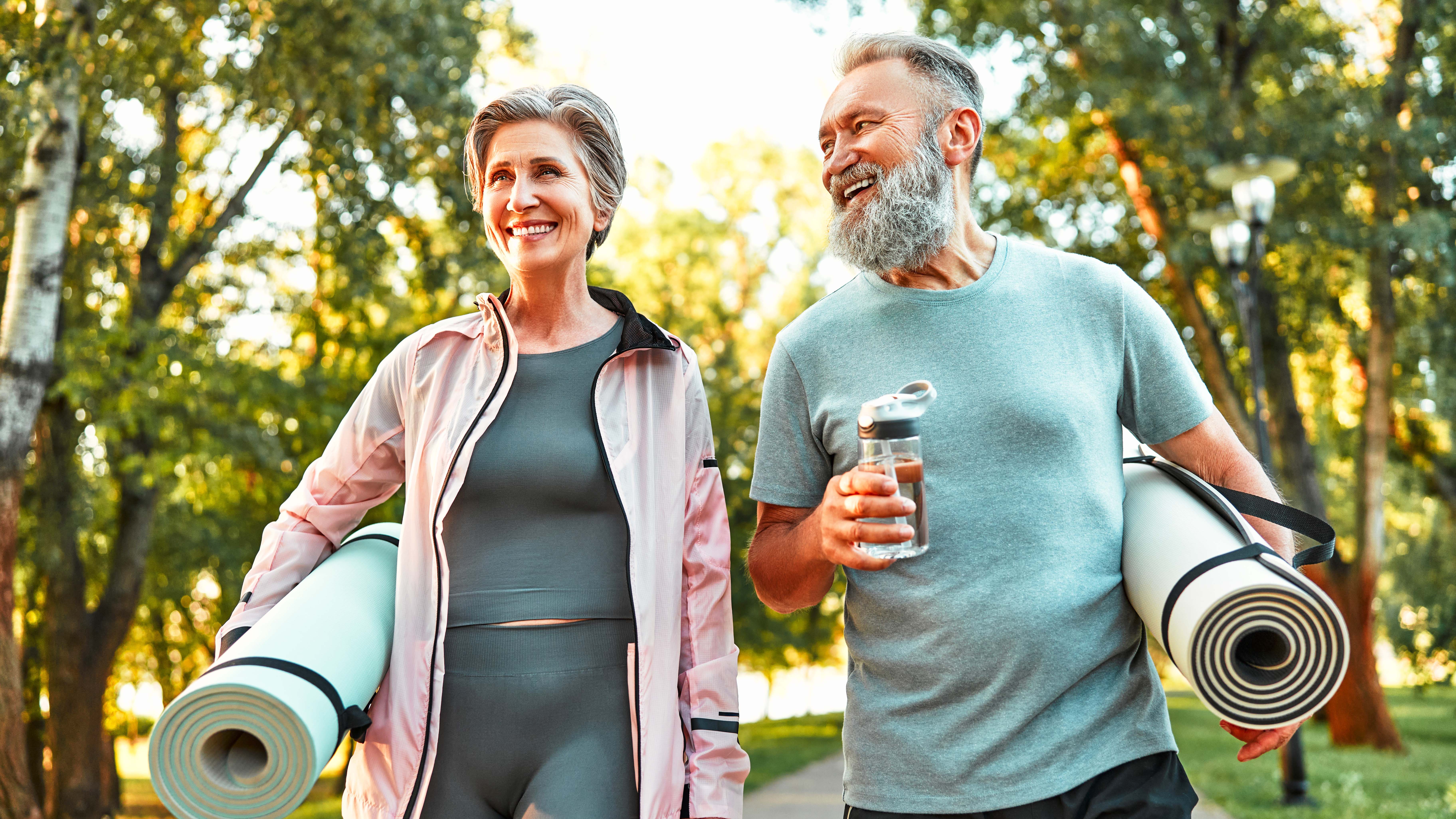
Research published in the BMJ Open suggests consistent activity of at least an hour per week can lower your risk of experiencing insomnia symptoms.
DON'T neglect the rest of your sleep routine
Avoid following your half hour of Tai Chi by collapsing on your bed in your gym clothes and scrolling through social media for an hour while eating sugary snacks and enjoying a post-workout beer.
You should also avoid workout supplements if exercising before bed. While it's probably no surprise these energy-inducing drinks contain caffeine, you might be unaware of just how much of the stimulant you'll be consuming — a single supplement can contain the equivalent caffeine of three cups of coffee.
The science behind exercise and sleep is still developing — although this review emphasizes the importance of further research — so above all else, listen to your body.
And if you're experiencing long-term sleep deprivation or insomnia, we recommend speaking to a healthcare professional to develop a treatment plan.

Ruth is an experienced Senior Staff writer at Tom’s Guide, covering all things sleep and mattresses. She writes to help people sleep better, from how-tos to the latest deals to mattress reviews, and has interviewed an array of experts who share her passion. She is also our specialist on memory foam — she’s flown around the world to see memory foam being made — and leads our hotel mattress content. She has a deep interest in the link between sleep and health, and has tried enough mattresses, from Helix to Nectar to Simba, to know the right bed really can make a difference to your wellbeing. Before joining the team at Tom’s Guide, Ruth worked as a sleep and mattress writer for our sister website, TechRadar.
You must confirm your public display name before commenting
Please logout and then login again, you will then be prompted to enter your display name.
 Club Benefits
Club Benefits










